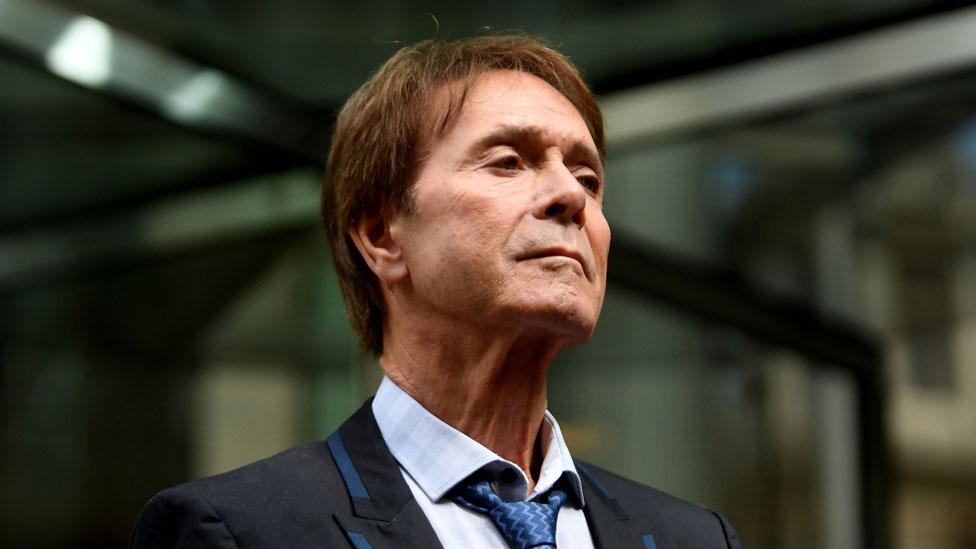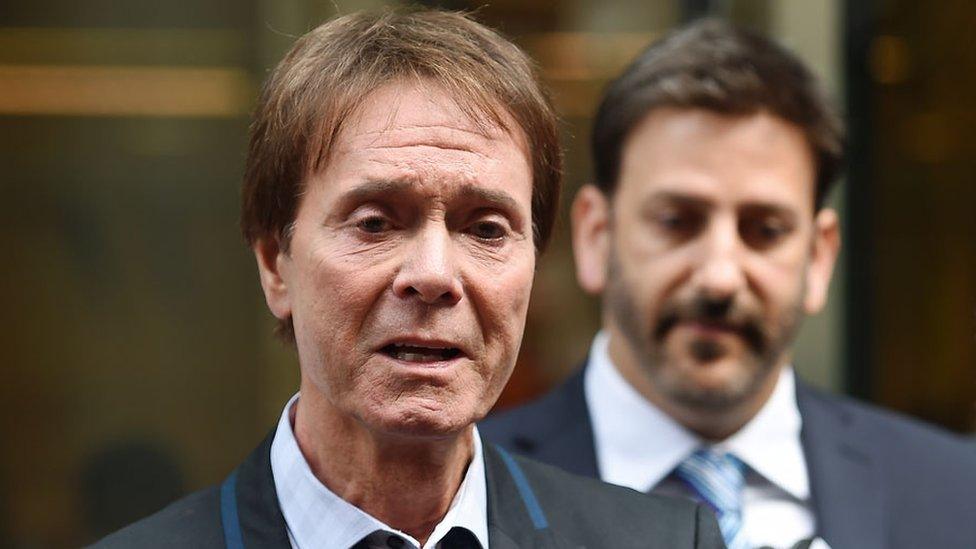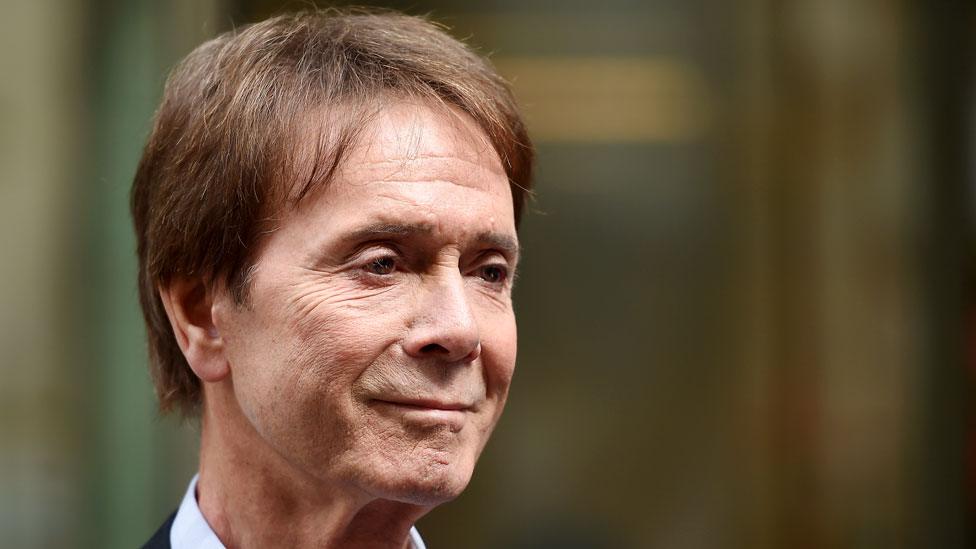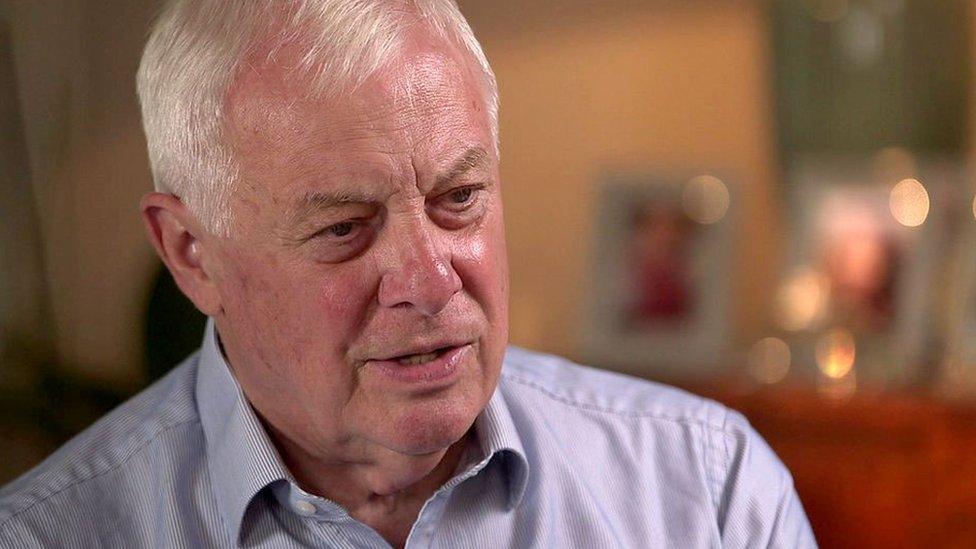Sir Cliff Richard privacy case: 'Tough questions' for BBC over appeal decision
- Published

The BBC's decision not to try to appeal against the judgment in the Sir Cliff Richard case ends the legal battle between the corporation and the star.
However, it raises a series of difficult questions about the way the corporation managed the story and the legal action that followed it.
In 2014 South Yorkshire police raided Sir Cliff's home in Berkshire as part of an investigation into an allegation of historical sexual assault.
The BBC had been tipped off. It named Sir Cliff and filmed the raid using a helicopter.
Sir Cliff, who was never arrested or charged, sued the BBC for breach of privacy. The corporation defended the case on the basis of its right to freedom of expression and argued that it was entitled to cover the story in the public interest.
Last month Sir Cliff won, the judge ruling his privacy had been infringed in a serious way by the BBC.
An application for permission to appeal against the judgment to the Court of Appeal, and any appeal that followed, would have cost the BBC a small fraction of the money it has already spent defending itself in the case. However, it would have prolonged the "distress" which the BBC acknowledges Sir Cliff has suffered.
The BBC has already paid more than £1.5m in legal costs and damages. That does not include Sir Cliff's "special damages" claim which covers monetary losses he sustained as a result of the BBC coverage. These include a lost book deal and the cost of professional advice on dealing with the media.
The precise amount of these damages are yet to be determined but the BBC's overall bill could rise to around £2.3m once these and its own legal costs are taken into account.
'Shift against press freedom'
On 26 July the BBC failed in an initial attempt to get permission to appeal from the trial judge Mr Justice Mann.
The corporation set out 11 grounds of appeal relating to the judge's findings of law in relation to his assessment of Sir Cliff's right to privacy and the balancing exercise between that right and the BBC's right to report the story.
There were also grounds related to the award of £190,000 in general damages, and to the BBC being ordered to pay a contribution to South Yorkshire Police.
The failure meant the BBC's only remaining option was an application for permission to appeal to the Court of Appeal directly.
That is done "on paper". In other words, a single judge considers the written grounds of appeal and has to decide whether there is a real prospect of success in respect of some or all of them, or whether there is some other compelling reason to allow an appeal.
If the BBC had been given permission to appeal, the appeal would have been restricted to arguing that the trial judge Mr Justice Mann had made errors of law. In other words, legal argument alone. There would be no witnesses and the hearing would probably have lasted a couple of days.
Today's announcement raises tough questions for the BBC.
Following the judgment in Sir Cliff's favour, the BBC's director of news and current affairs, Fran Unsworth, said: "This judgment creates new case law and represents a dramatic shift against press freedom and the long-standing ability of journalists to report on police investigations, which in some cases has led to further complainants coming forward.
"This impacts not just the BBC, but every media organisation. We don't believe this is compatible with liberty and press freedoms - something that has been at the heart of this country for generations.
"For all of these reasons, there is a significant principle at stake. That is why the BBC is looking at an appeal."
'Fundamental principle'
The BBC's new statement maintains that position, but says that "very experienced counsel" has advised that the chances of a successful appeal "are not promising".
This despite the advice that the judge "erred in law in finding that broadcasters and journalists normally have no right to publish the name of the person who is the subject of a criminal investigation".
So, instead of trying to appeal, the BBC wants Parliament to legislate on what it describes as "a fundamental principle of press freedom".
Many will ask why the BBC has decided not to seek permission to appeal against a judgment its director of news and current affairs felt represented a dramatic shift against press freedom and reduced scrutiny of the police.
And why, if it was the right thing to do to run the original story, to vigorously contest Sir Cliff's legal action in court and to remain bullish about the possible justification for an appeal following the judgment, is it now the right thing not to try to appeal through the courts.
The BBC's answer is that it has been told that it would not win an appeal.
While many in the media felt strongly that the judgment restricted press freedom and the BBC received support among newspapers that are often critical of it, a significant section of the public did not agree with the BBC position. They supported Sir Cliff and did not like the way he had been treated by the BBC.
The BBC's statement does not mention public opinion. However, in the battle between a national treasure and the national broadcaster, it is difficult not to conclude that the opinion of the public, who pay the licence fee that funds the BBC, may well have been a significant factor.
- Published15 August 2018

- Published26 July 2018

- Published26 July 2018
- Published19 July 2018
